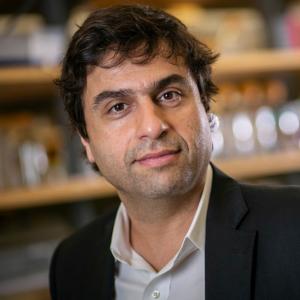Biochemistry Leadership Makes Statement on Combatting Racism
Biochemistry leadership makes statement on what the department can do to fight racism and promote an inclusive environment.
Ping Dong, PhD, Receives Prestigious American Epilepsy Society Award
Postdoc, Dr. Ping Dong, receives fellowship to study how an ion channel mutation causes epilepsy and movement disorders.
Yang Lab Identifies New Biological Function of TMEM16F CaPLSase
The Yang Lab's new discovery gives insights into the function of TMEM16F CaPLSase in trophoblast fusion and placental development. Read more
Solving the Mystery of MESH1
How do human cells deal with stressors and nutrient depletion? Drs. Pei Zhou, Ashley Chi, and team solved the mystery when they discovered the inner workings of MESH1. Read more
Haoran Pang and Yokoyama Lab Study MoaA
Haoran Pang and the Yokoyama Lab's work on the catalytic mechanism of MoaA is published in JACS. Read more
Duc Huynh Wins NIH Abstract Award
At this year’s NIH FDA Glycoscience Research Day, Duc Huynh won an award for his abstract that highlights the role of O-GlcNAc modification in regulating the degradation of intermediate filaments, at the substrate level and at the E3 ligase adaptor. Watch the video from research day.
Al-Hashimi Receives Award For Extraordinary Scientific Achievement
Hashim Al-Hashimi, PhD, wins 2020 National Academy of Sciences Award in Molecular Biology. Watch him receive the award during the recorded ceremony at 28:28 minutes.
Nichole Orench-Rivera Prepares For Her First Faculty Position
Nichole Orench-Rivera discusses her experience in the Preparing Future Faculty program and how it has prepared her for her first faculty position.
Alum, Desmond A. Moore, PhD, Explains What He Received From His Duke Experience
Dr. Moore speaks about building his Duke network and working in industry, plus gives advice to current grad students. Read more









